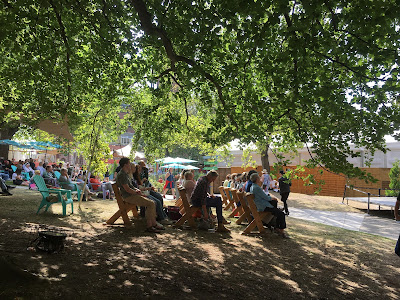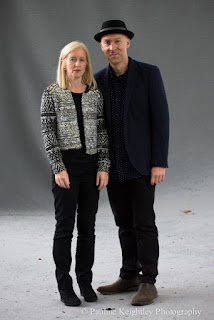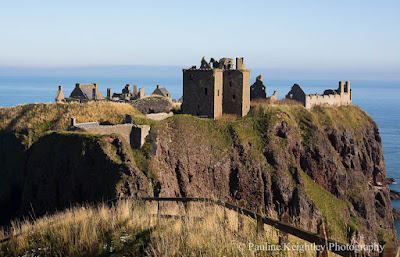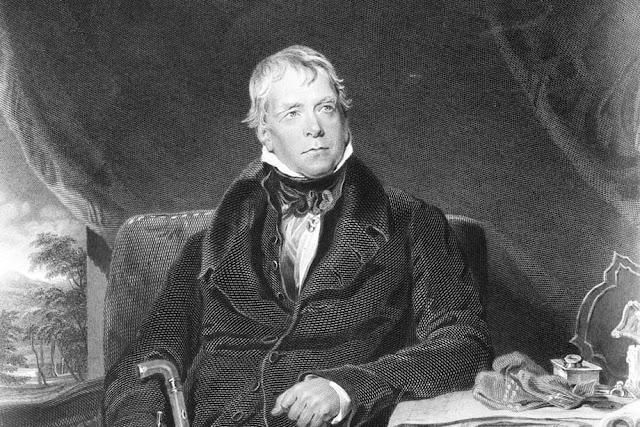This years festival returns to the Edinburgh Art college with 600 live events, as it marks its 40th year, organisers have announced. There will be three authors who attended the first festival in 1983 – Alistair Moffat, Michael Rosen, and AN Wilson.
The festival will feature over 470 authors, writers and thinkers from 49 countries and 600 live events,
Audiences can also hear memoirs from Judy Murray, Rob Delaney and Munroe Bergdorf.
Well known authors attending include IRVINE Welsh, Sebastian Faulks, Bernardine Evaristo, Val McDermid, James Kelman, Ian McEwan and Elif Shafak. PLUS climate activist Greta Thunberg. From the world of politics, former prime minister Gordon Brown, Ruth Davidson and Kezia Dugdale.
Scotland’s First Minister Humza Yousaf will interview Hashi Mohamed, who arrived in Britain as an unaccompanied child refugee from Kenya and is now one of the UK’s leading housing barristers. Scotland-based authors appearing include Jenny Colgan, Denise Mina, Chris Brookmyre and Alexander McCall Smith, while Deborah Levy and Katherine Rundell are among UK writers.
From abroad the prime minister of Iceland, Katrin Jakobsdottir joins Ragnar Jonasson to discuss their crime novel Reykjavik.
.pk.jpg) |
| Alexander McCall Smith |
 |
| Ben Okri |
 |
| Anthony Seldon |
 |
| Hera Lindsay Bird |
**Children’s program - There will be plenty for children and young people, with authors including
Julia Donaldson and children’s laureate Joseph Coelho returning, alongside Dapo Adeola and Nathan Bryon, Tracey Corderoy and Steven Lenton.
Rachel Fox, director of the festival’s children’s program: “As well as our animated courtyard performances and character appearances, we have an array of interactive workshops with leading authors, illustrators and comic book creators. “Children will have the chance to learn how to draw manga, preserve plant specimens, make explosions with food, and write the story of their life (so far) and much, much more.”
**Edinburgh International book festival, August 12-28
.jpg) |
| Gordon Brown |
 |
| Don Paterson |
Festival director Nick Barley said: “This year’s book festival program is called The Joy Of Words, and it’s been truly a joy to bring it together. “My team and I have aimed to build an uplifting festival that is packed with exceptional thinkers from all over the world. “At a time of polarised opinion and deep divisions, we hope to rediscover the pleasure of conversation; the satisfaction of spending time with people who can offer positive insights into the world today. “This is my 14th and final program for the book festival, and I’m very excited by the prospect of 18 days in August with such a cornucopia of brilliant writers.”
Iain Munro, chief executive of Creative Scotland: “Featuring an impressive range of international and homegrown talent, this year’s program provides an opportunity for people from all walks of life to experience the joy of words.”
Scottish culture minister Christina McKelvie: “Without words there would be no books so the theme for this year’s Edinburgh International Book Festival is well chosen. With the world’s greatest writers and thinkers gathered in Edinburgh, there really is something for everyone.
The Scottish Government is proud to support the festival as it celebrates its 40th anniversary with £182,500 from our Expo and Place funds.”
Tickets for the festival go on sale June 29 - https://www.edbookfest.co.uk/


.jpg)

























